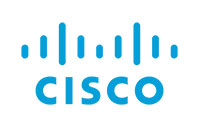Ransomware is a virtual plague that has spread to all the corners of the world. From my last post, http://bit.ly/2vQSr2T, you can see that the first cases of ransomware attacks were first reported in Russia during 2005 and 2006 and that it has experienced an exponential growth and spread since then. Today, my focus is Africa. Here, I discuss African countries thus far affected by ransomware and their response to this global scourge.
Should African countries be alarmed by the recent cyber-attacks?
Most of us are aware of the ransomware effects on several countries throughout the world, but very little information is offered or is available of its effects on African countries. This lack of ample evidence begs the question of whether or not African countries were even affected by any of the ransomware attacks. They were. South Africa, Nigeria, Angola, Egypt, Mozambique, Tanzania, Niger, Morocco and Tunisia are some of the countries that have reportedly been affected by the recent “WannaCry” ransomware malware that hit institutions around the world.
Within Africa are some of the world’s fastest growing economies and with the Internet’s active role in this growth, Africa’s Internet penetration rate is 27% worldwide. Internet world statistics. These two components are proof that African states should indeed be quite heavily invested in cyber-security.
Is Africa prepared to deal with these type of attacks?
Individually, Africans have a role to play in making the Internet safe for them and for the rest of the world, however this role does not come without its challenges. Most African states lack a sufficient number of adequately skilled professionals and the available ones are generally taken for granted. Most businesses focus on security within their companies are centered around data and personal security rather than cyber-security. This is due to the limited public awareness on the risks of cyber attacks and the reality that not enough countries in Africa, thus far, have been affected by ransomware for adequate public stimulus. Another contributing factor to Africa’s lack of preparation in terms of ransomware and general cyber-security is that it lacks knowledge of cyber law enforcement mechanisms and practical regulatory guidance from government. That is not to say that Africa lacks tools and recognition of the problem of cyber security, but that the Africa Union Convention on Cyber Security and Data Protection is not a cure. All stakeholders at the regional, national, organizational, and individual level should work together to mitigate the risk.
How can Africa accordingly deal with ransomware?
 A multi stakeholder approach is urged by the Internet Society in resolving these challenges. Additionally, Olaf Kolkman’s blog It’s Up To Each Of Us: Why I WannaCry For Collaboration details the Collaborative Security approach, while Niel Harper provides tactical “how to” advice in 6 Tips for Protecting Against Ransomware.
A multi stakeholder approach is urged by the Internet Society in resolving these challenges. Additionally, Olaf Kolkman’s blog It’s Up To Each Of Us: Why I WannaCry For Collaboration details the Collaborative Security approach, while Niel Harper provides tactical “how to” advice in 6 Tips for Protecting Against Ransomware.
For a more hands-on approach contact us at Comztech Limited, information at , we provide more immediate solutions, such as data backup and cloud computing, to your ransomware and cyber-security challenges.

























